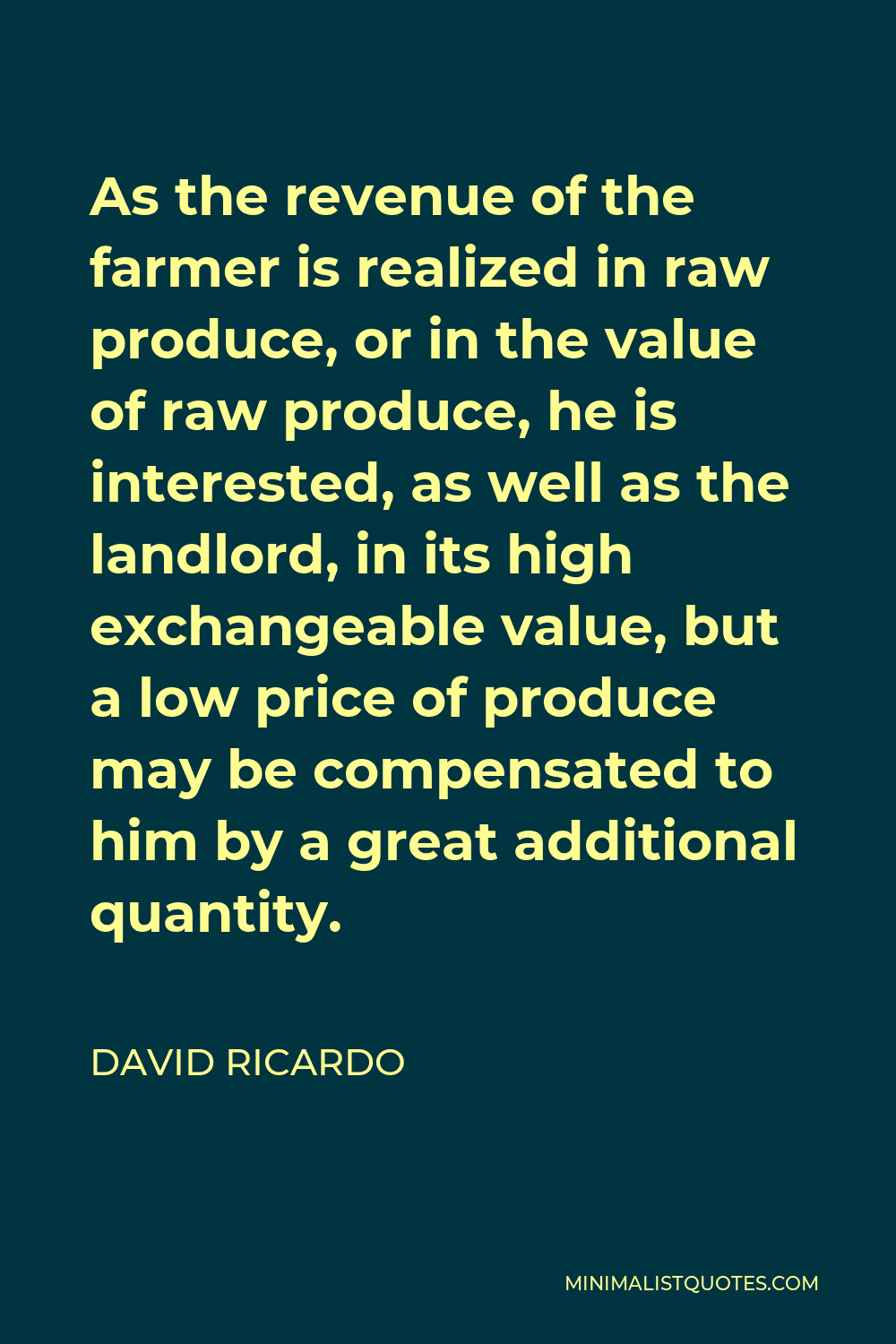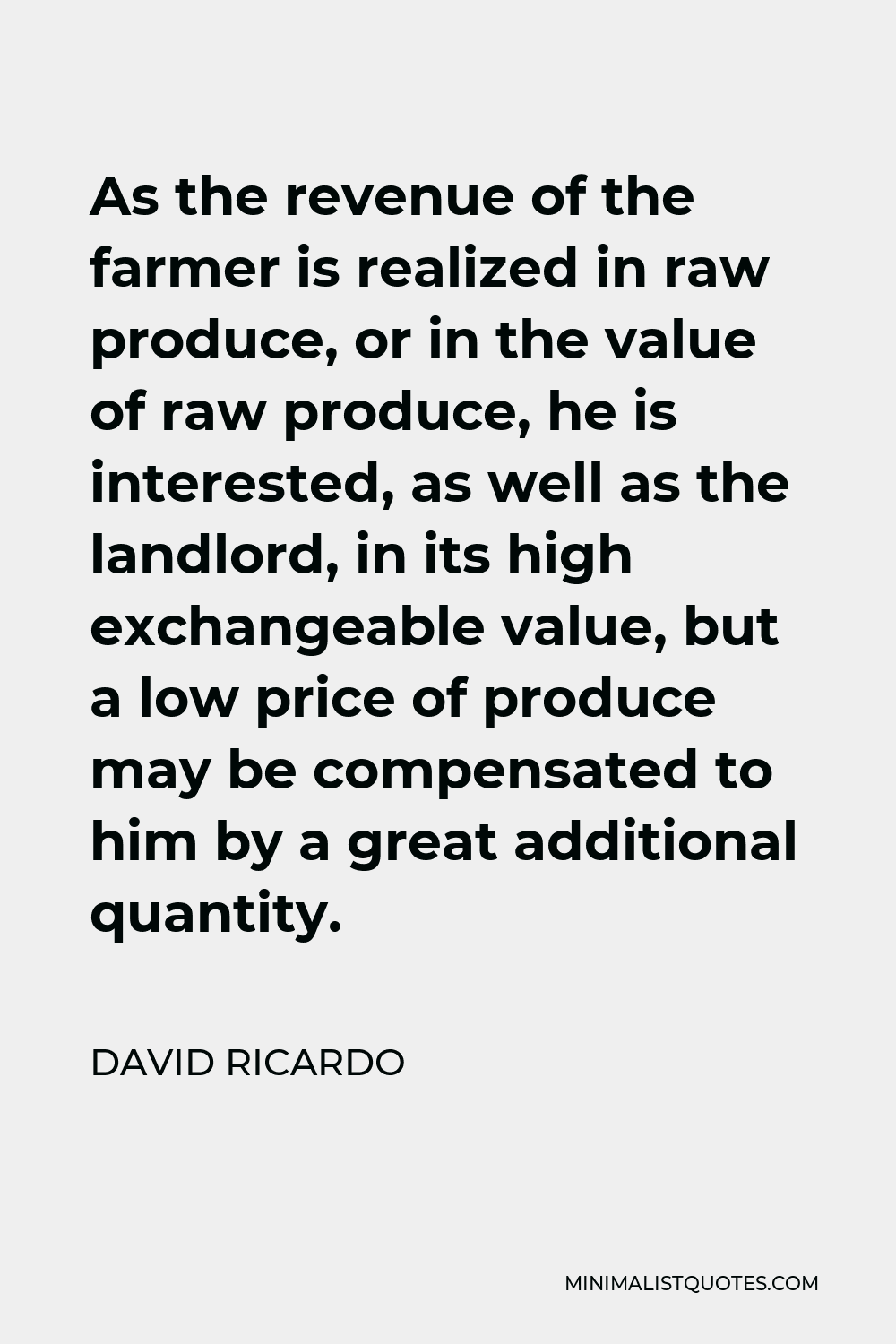The interest of the landlord is always opposed to the interests of every other class in the community.
DAVID RICARDOAs the revenue of the farmer is realized in raw produce, or in the value of raw produce, he is interested, as well as the landlord, in its high exchangeable value, but a low price of produce may be compensated to him by a great additional quantity.
More David Ricardo Quotes
-





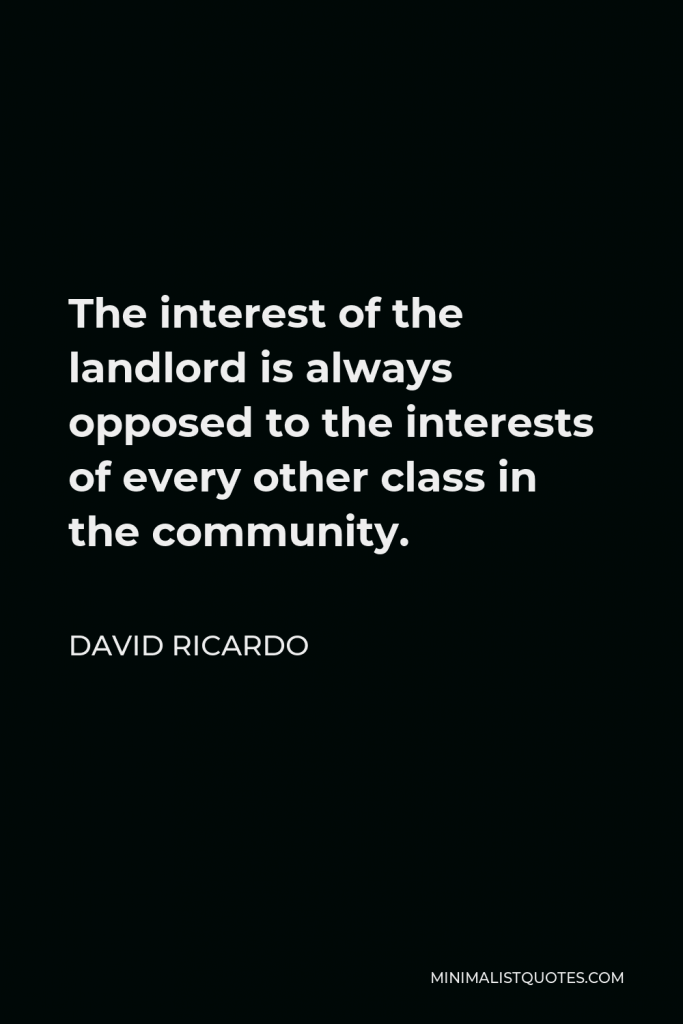

-





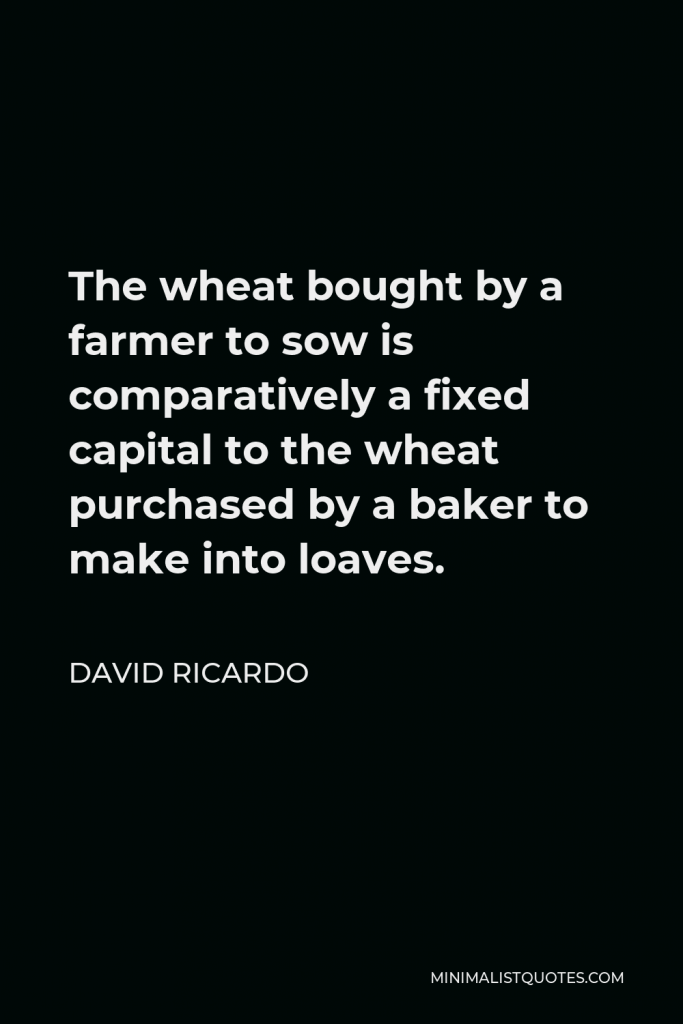

The wheat bought by a farmer to sow is comparatively a fixed capital to the wheat purchased by a baker to make into loaves.
DAVID RICARDO -





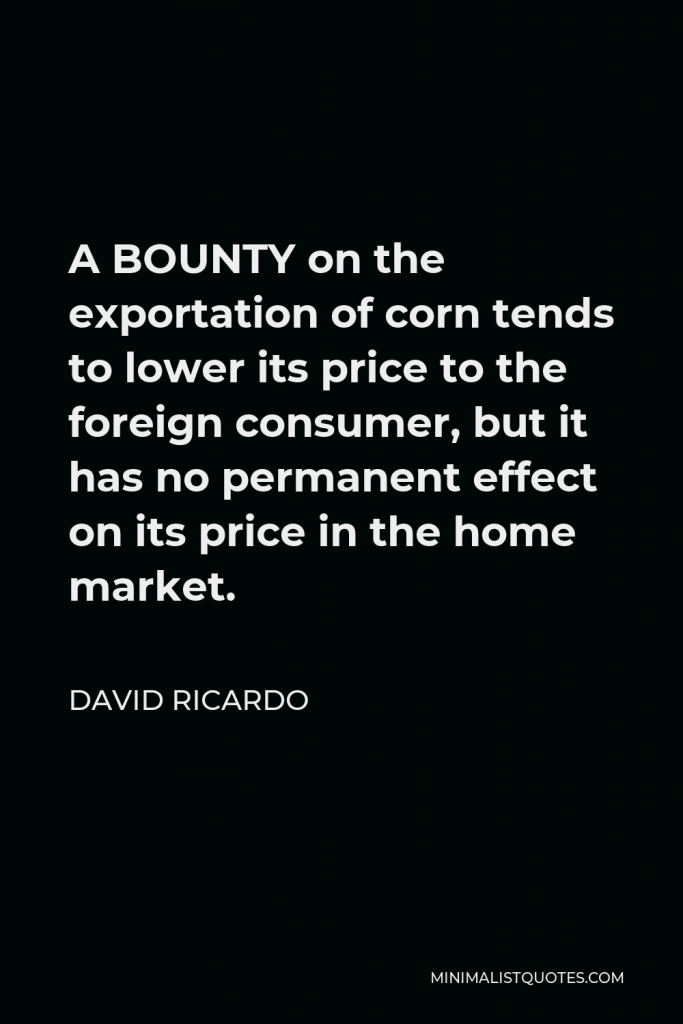

A BOUNTY on the exportation of corn tends to lower its price to the foreign consumer, but it has no permanent effect on its price in the home market.
DAVID RICARDO -





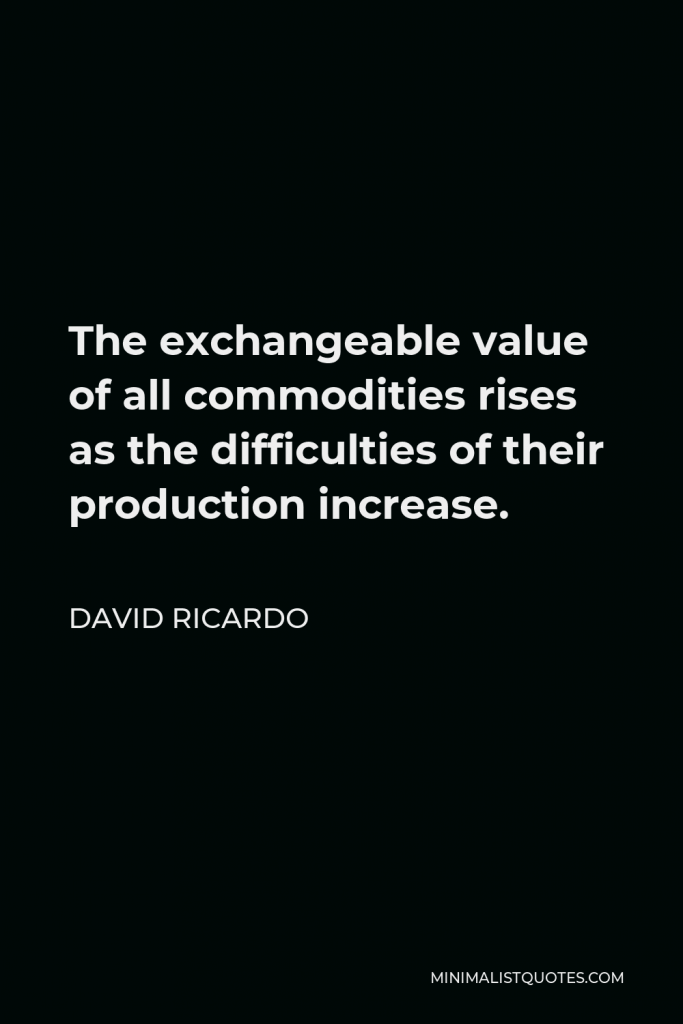

The exchangeable value of all commodities rises as the difficulties of their production increase.
DAVID RICARDO -





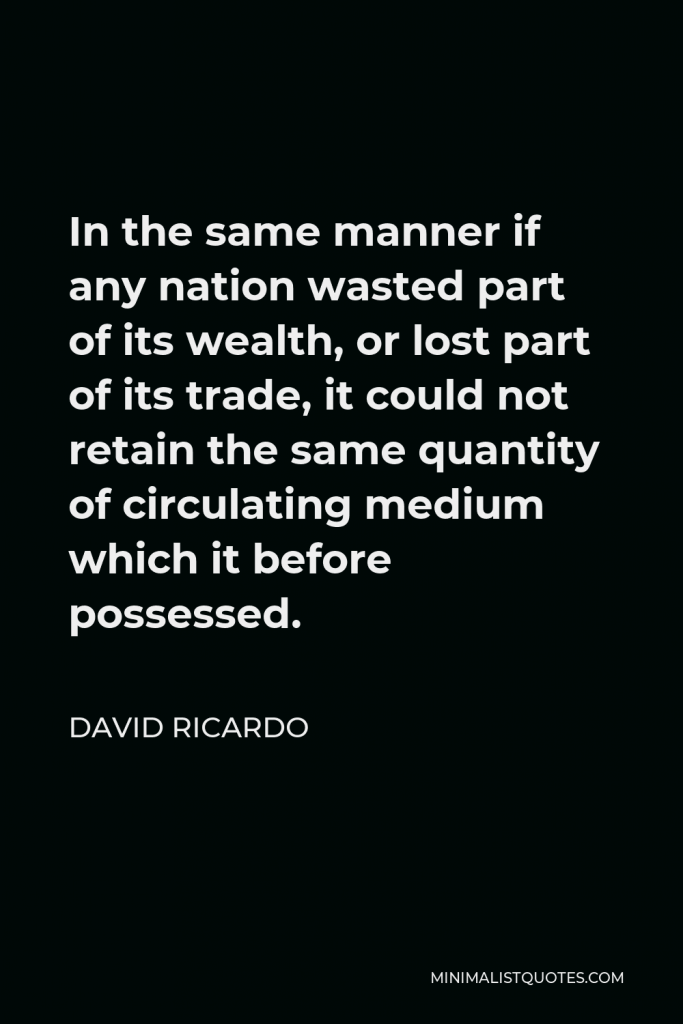

In the same manner if any nation wasted part of its wealth, or lost part of its trade, it could not retain the same quantity of circulating medium which it before possessed.
DAVID RICARDO -





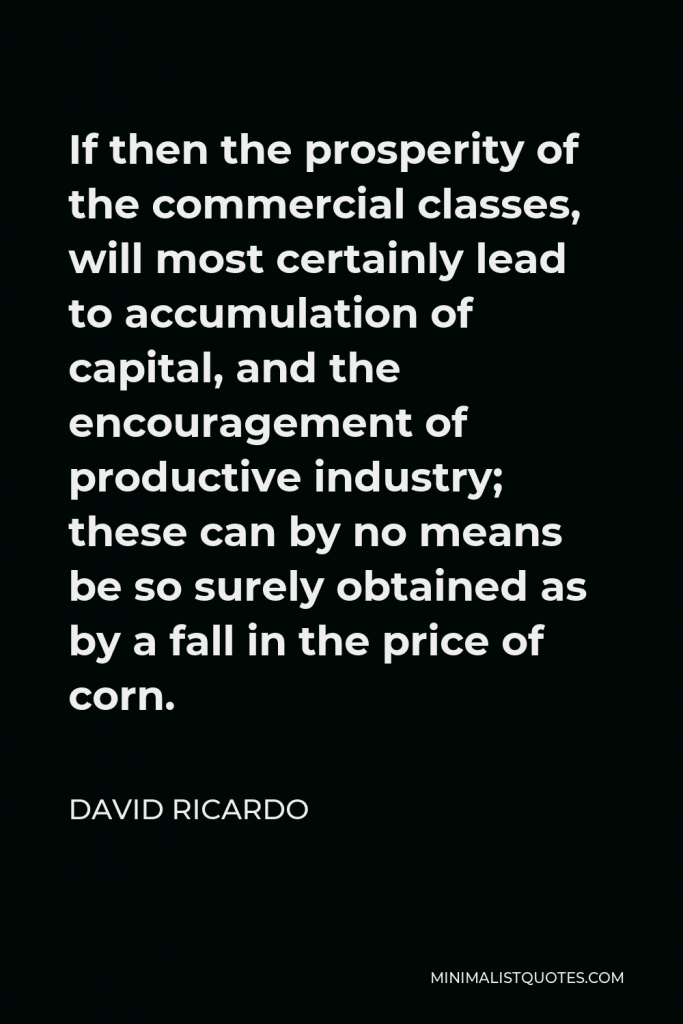

If then the prosperity of the commercial classes, will most certainly lead to accumulation of capital, and the encouragement of productive industry; these can by no means be so surely obtained as by a fall in the price of corn.
DAVID RICARDO -





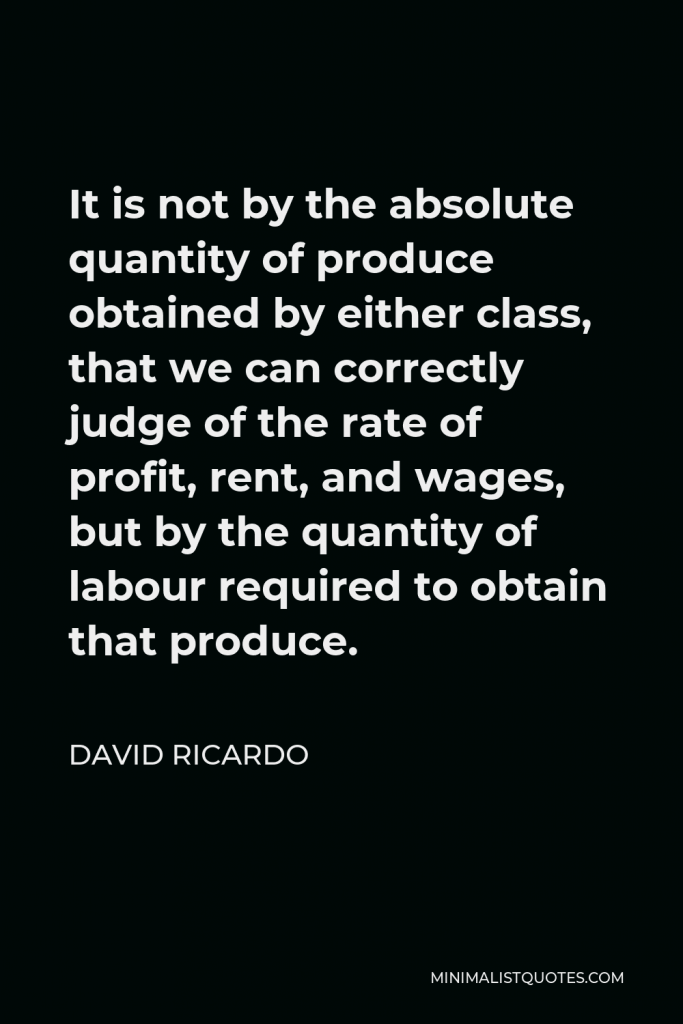

It is not by the absolute quantity of produce obtained by either class, that we can correctly judge of the rate of profit, rent, and wages, but by the quantity of labour required to obtain that produce.
DAVID RICARDO -





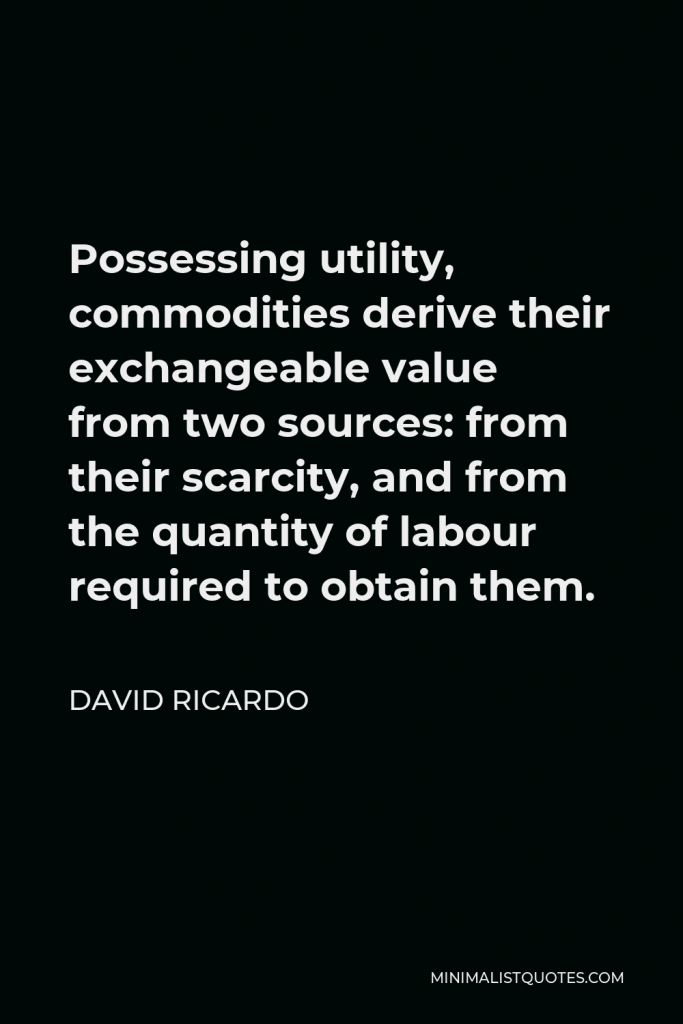

Possessing utility, commodities derive their exchangeable value from two sources: from their scarcity, and from the quantity of labour required to obtain them.
DAVID RICARDO -





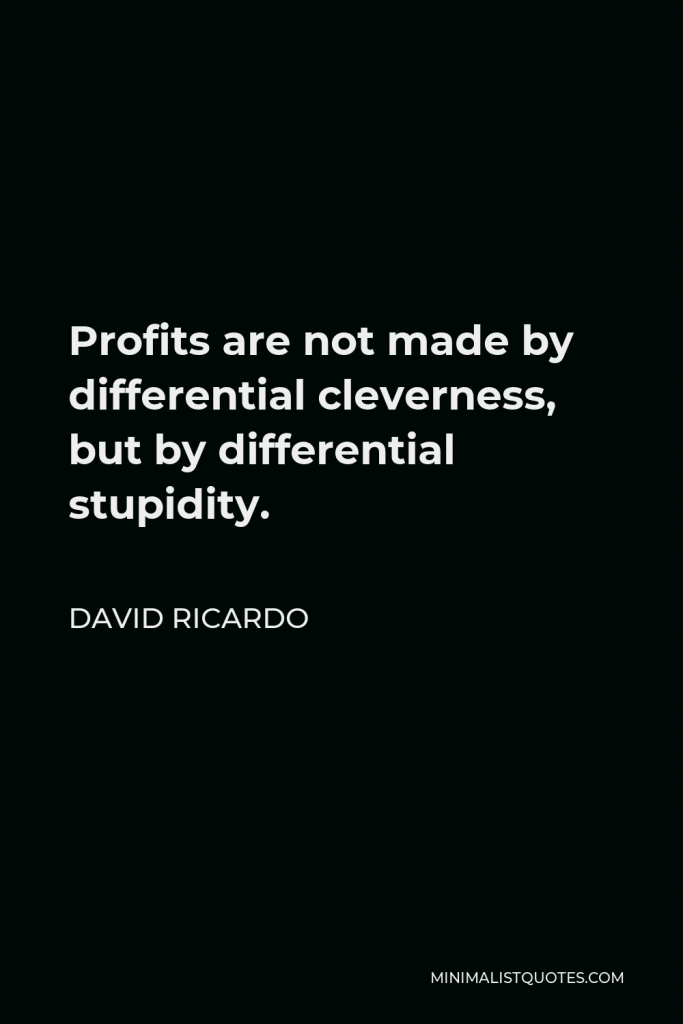

Profits are not made by differential cleverness, but by differential stupidity.
DAVID RICARDO -





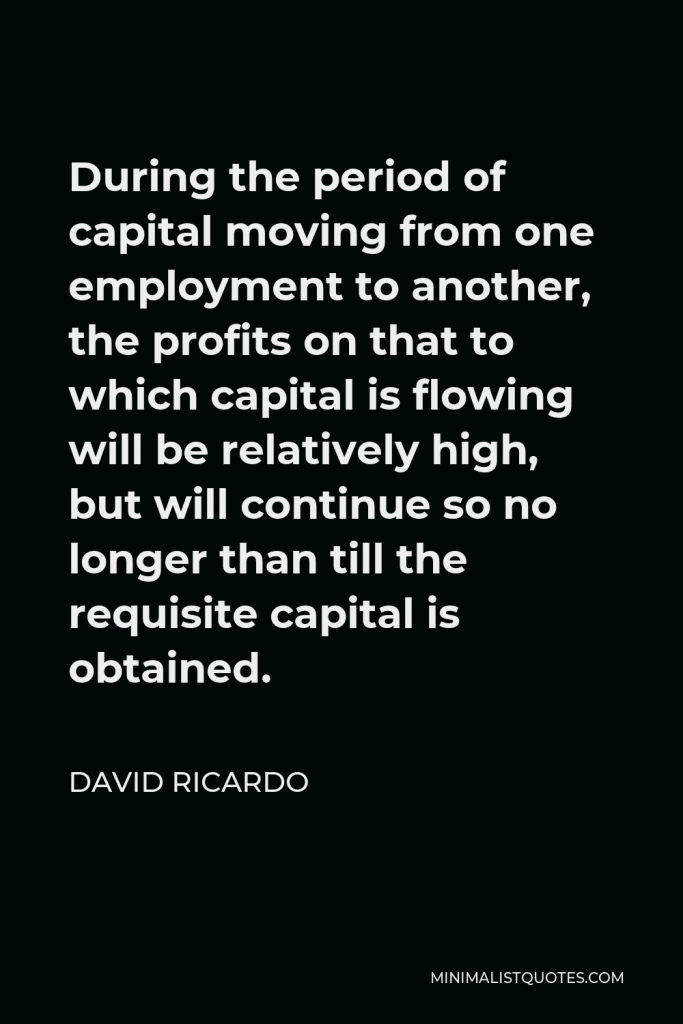

During the period of capital moving from one employment to another, the profits on that to which capital is flowing will be relatively high, but will continue so no longer than till the requisite capital is obtained.
DAVID RICARDO -





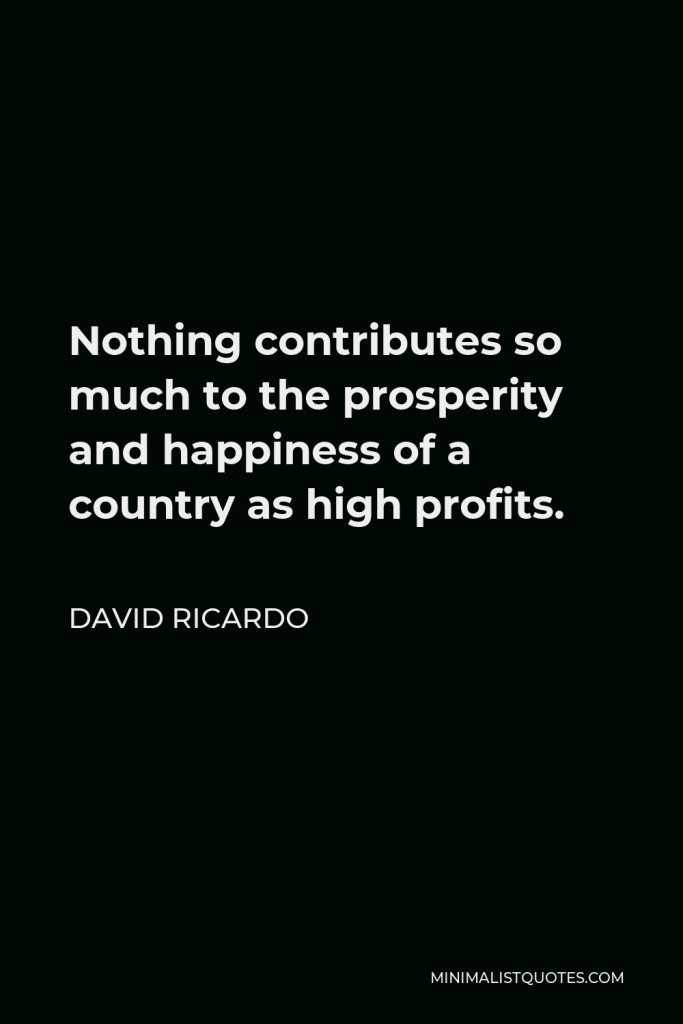

Nothing contributes so much to the prosperity and happiness of a country as high profits.
DAVID RICARDO -





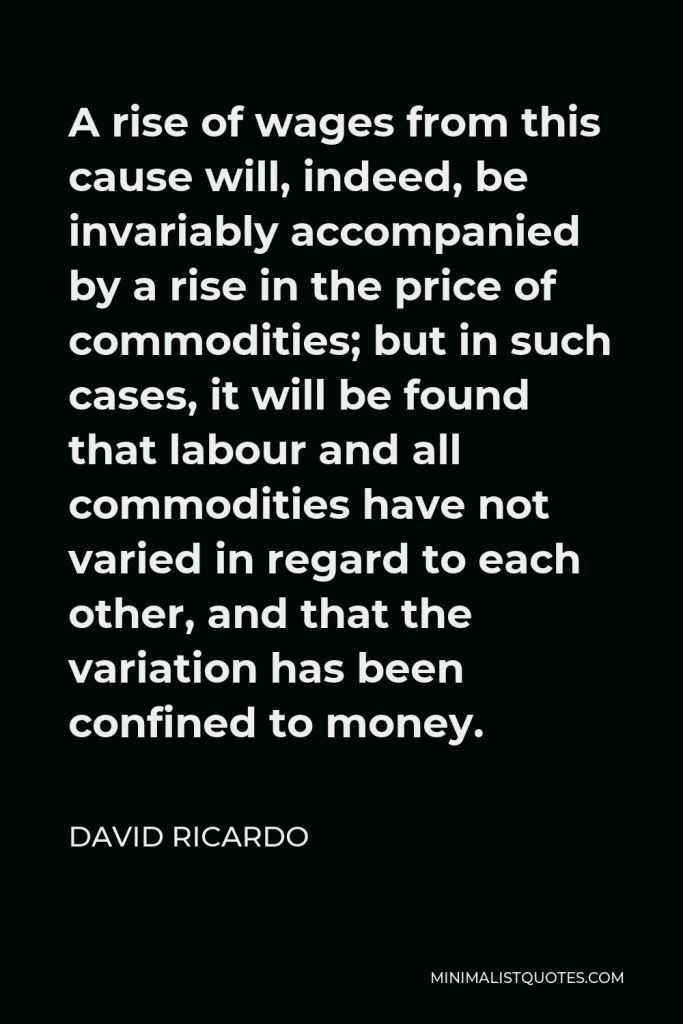

A rise of wages from this cause will, indeed, be invariably accompanied by a rise in the price of commodities; but in such cases, it will be found that labour and all commodities have not varied in regard to each other, and that the variation has been confined to money.
DAVID RICARDO -







I wish that I may never think the smiles of the great and powerful a sufficient inducement to turn aside from the straight path of honesty and the convictions of my own mind.
DAVID RICARDO -





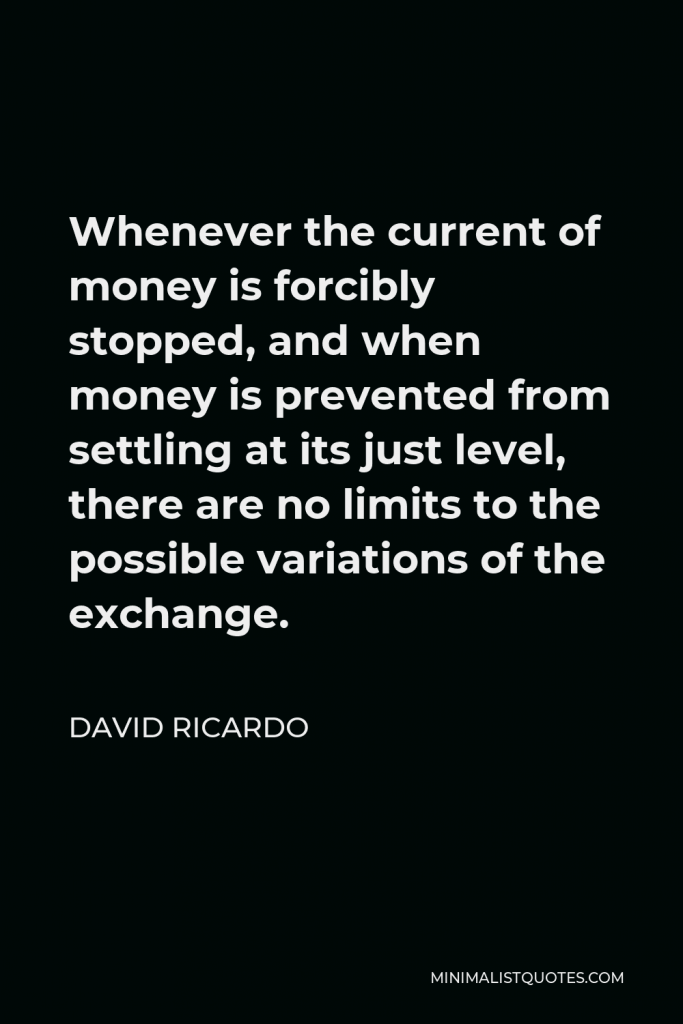

Whenever the current of money is forcibly stopped, and when money is prevented from settling at its just level, there are no limits to the possible variations of the exchange.
DAVID RICARDO -





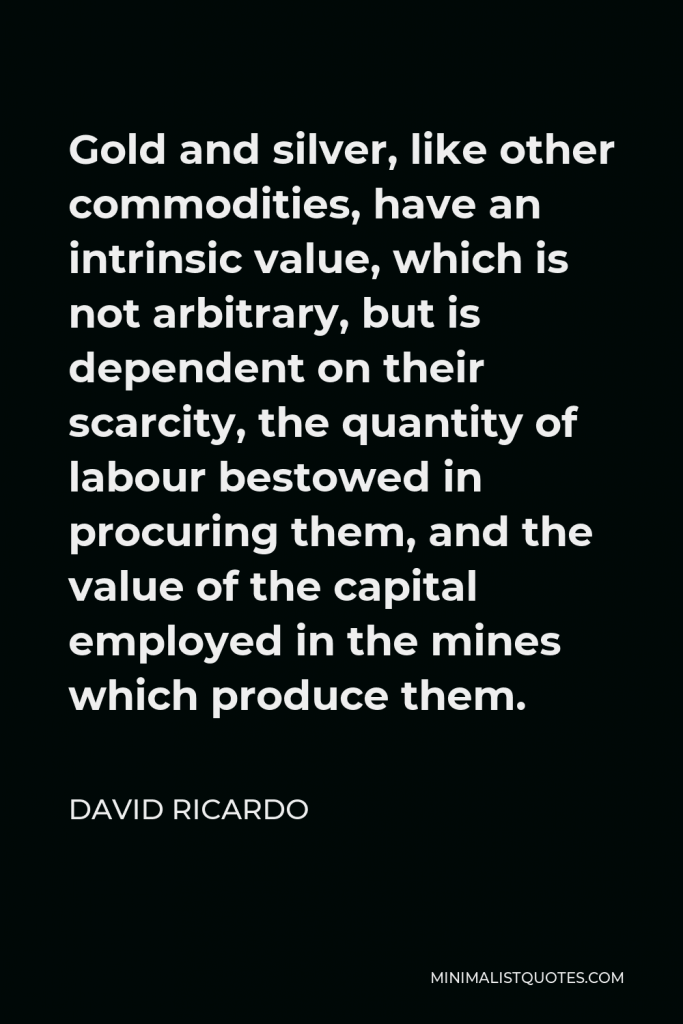

Gold and silver, like other commodities, have an intrinsic value, which is not arbitrary, but is dependent on their scarcity, the quantity of labour bestowed in procuring them, and the value of the capital employed in the mines which produce them.
DAVID RICARDO -





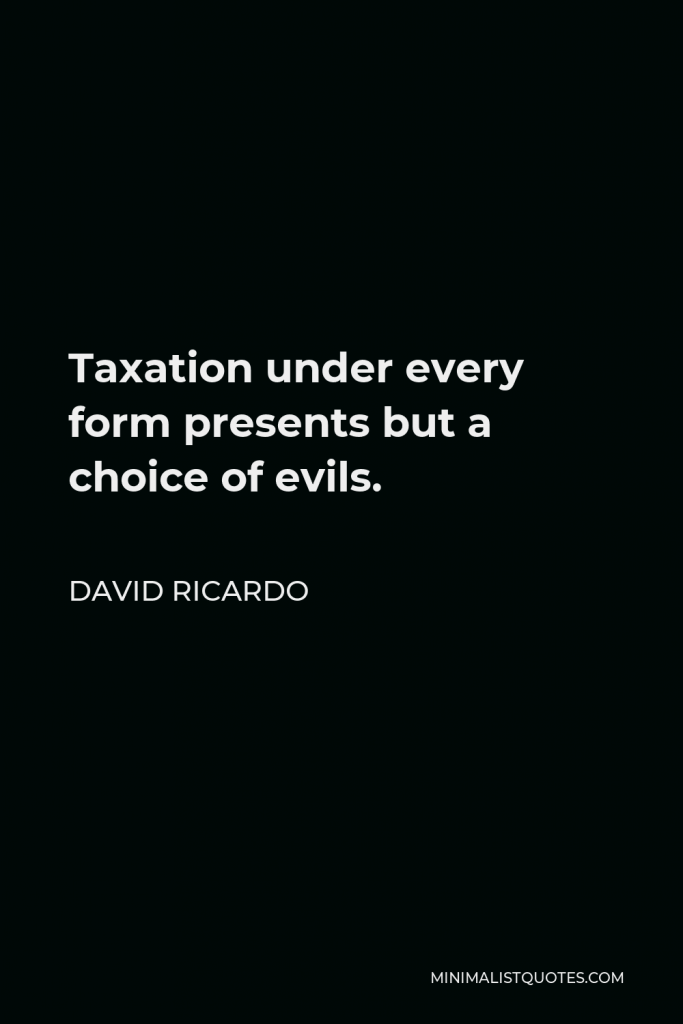

Taxation under every form presents but a choice of evils.
DAVID RICARDO

